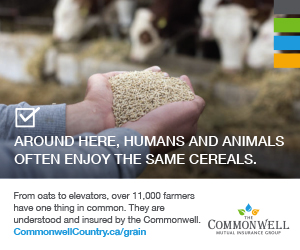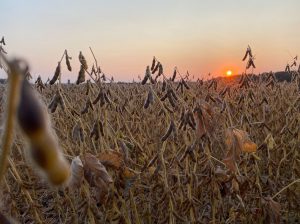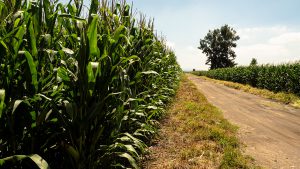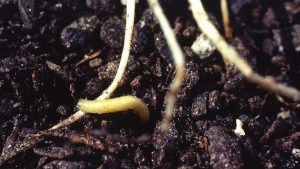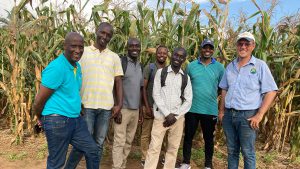Speaking up for agriculture
INTERNATIONAL FARMER PROFILE: MICHELLE JONES
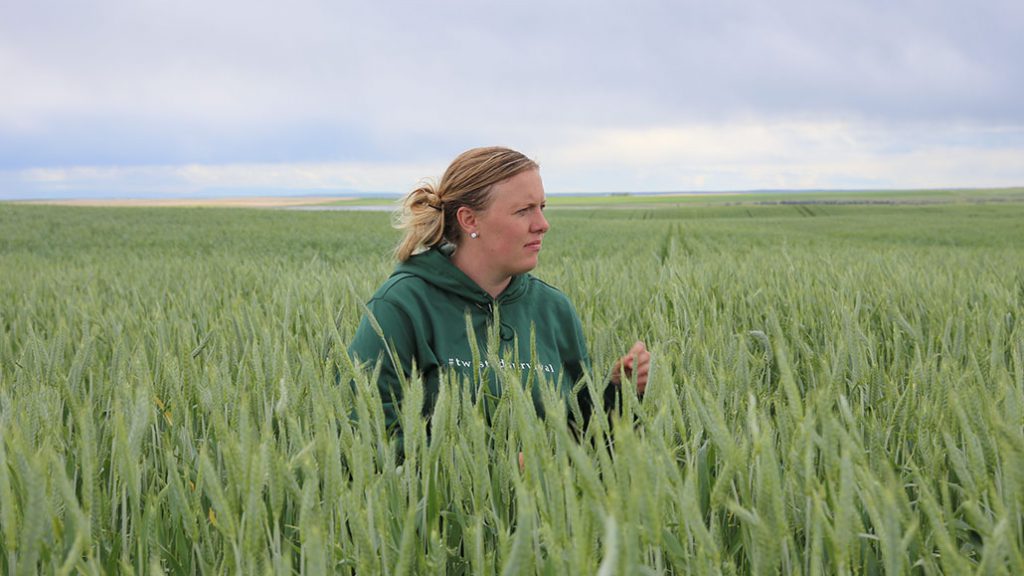
COMMUNICATION WASN’T ALWAYS her strong suit. In fact, in college, Montana grain farmer Michelle Jones was so afraid of public speaking she would drop classes if the curriculum included a final presentation. Today, though, she is a strong advocate for agriculture, and especially Montana grain farmers, using her communication skills to connect with farmers, policymakers, the media, and the public. And while she doesn’t know exactly how she got from there to here, she knows how important it is that she did.
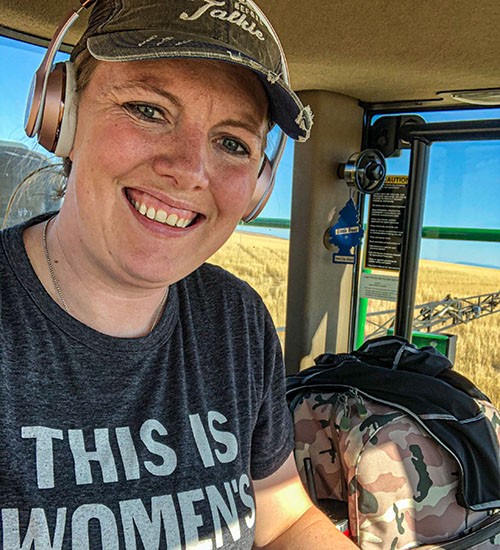
Born and raised on a farm in south central Montana, Jones has spent all of her life on the farm. Today, she and her husband, Travis, a fourth generation rancher, farm 11,000 acres together with Jones’ dad. They grow wheat, alfalfa, malt barley, safflower, sunflowers, corn, and forage grains. They also have a small cow-calf operation.
Ever since Jones was very young, she knew she wanted to farm. When she went off to college in Ohio, she studied history and political science, unsure at that time if she would be able to return to farming. After graduating, Jones started a job with UPS, which she greatly enjoyed. She decided to pursue an MBA in Operations Management and Mediation/Dispute Resolution. The job with UPS took her to Seattle. Later, she took on a job with Amazon Fresh.
RETURN TO FARMING
In 2012, Jones received a call from her dad, asking her to describe her dream job. Without hesitation, she said she still wanted to farm. At that time, he had been offered a new lease and needed someone on the farm full-time. That summer she returned to the farm to work full-time alongside her dad.
In 2013, Jones combined her love of politics and policy with her passion for farming when she decided to throw her name on the ballot as a possible director on the Montana Grain Growers Association board. There was no one representing her district and she thought the role would be fun, so she decided to take a chance.
“If I had waited for them to approach me, it never would have happened because they didn’t know who I was,” she says.
Jones got the position and five years later was elected first female president. In total, she served seven years on the board of the Montana Grain Growers Association (2013–2019), and another two on the board of the National Association of Wheat Growers (2016–2018).
Through these associations, Jones worked closely with politicians and policymakers to make sure the voices of Montana farmers were heard. She was instrumental in making sure Montana farmers along the border could not only deliver grain to Canadian elevators under the new Canada-United States-Mexico Agreement (CUSMA), but that U.S. varieties registered in Canada would receive reciprocal grading treatment. For Montana farmers, it was a big win, she says.
Outside of her role with Montana Grain Growers Association, Jones continued to advocate and communicate about agriculture. In 2014, she started her own agriculture consultancy and advocacy company, BigSkyFarmHer. Using an online platform that includes social media and a blog, in combination with public speaking, Jones’ aim is to provide consumers, farmers, the media, and policymakers with insight into the day-to-day life of a farmer. She helps break down U.S. farm and trade policy, and acts as a reliable source of insight into the world of agriculture.
She particularly enjoys engaging with farmers on policy.
“I think in a lot of ways farmers don’t really understand all of the policy obligations, whether it be all of the programs that are available to them, but also the impact of some of the policies that different administrations have via trade or environment,” Jones says. “Some of these things should be considered when we’re looking at how we’re going to vote.”
When she first started advocating online, Jones used Facebook, Instagram, and a personal blog. In 2017, she decided to jump on Twitter, despite hearing stories about the terrible comments some farmers received. First, she used the platform to connect with other farmers, but eventually realized it was a good place to connect with mainstream media.
“It’s not unusual for people in agriculture to shy away from media interviews, especially if it’s mainstream media,” she says. “But I think that we’re really missing an opportunity there when we do that.”
“We have an opportunity to control the narrative and make sure that our voices are heard to a far wider audience than we could ever reach,” she adds.
ADVOCACY
To those farmers who want to advocate on behalf of their industry, Jones offers these tips:
Be deliberate in your messaging. While she urges farmers to take a chance, Jones cautions them to be deliberate in their commentary. If you are not comfortable talking about GM technology or pesticide use, don’t, she says. You control the narrative.
Don’t worry about the numbers. You don’t need to speak to thousands or have 10,000 followers to make an impact, says Jones, pointing to a local Future Farmers of America leader in her community who worked tirelessly behind the spotlight to affect change. Start small and start local.
Get media training. Jones received media training through her work with the Montana Grain Growers Association. She also followed industry-sponsored programs to continue her development. And while she says she is comfortable as a public speaker now, she would never turn down an opportunity for further training.
Pick your battles wisely. While they might fire you up, not all issues are worth the energy (think organic versus conventional). Instead, pursue issues where you can really affect change.
Build coalitions, even unlikely ones. During her years with Montana Grain Growers Association, Jones had an opportunity to work alongside many politicians. She knew who to talk to about trade issues, and who would listen to her concerns about the farm bill. It didn’t matter if they didn’t agree on everything. “Focus on the actual policy, not on the person,” she says. “And then build coalitions that you didn’t see coming.”
Be honest, be open, be yourself. Some of the greatest impact Jones had on her community was the result of just being herself. She has been very honest and public about her struggles with postpartum depression and anxiety. Not only did she receive the assistance she needed, but she inspired others to speak up as well.
“It doesn’t take much to have a huge impact on agriculture and the future of agriculture,” she says. “You don’t necessarily have to speak to rooms of a thousand people. You can have an impact wherever you’re comfortable having an impact.” •


